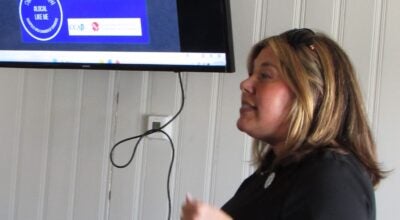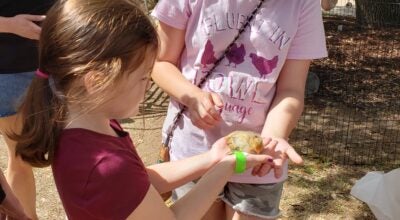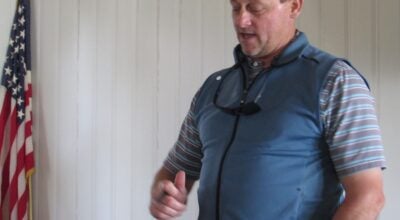LifeSkills programs begin for sixth-graders
Published 10:37 pm Tuesday, December 15, 2009
As the students at Demopolis Middle School came filing into the science class last week, they couldn’t help noticing the pair of lungs displayed on the table at the front of the room.
They really took notice when an air pump attached to the lungs enabled them to fill with air, then release it in the act of breathing.
One lung was a healthy red. The other was black from prolonged tobacco use. One by one, students from Ola Ross’s class and Deborah Brown’s class filed in front of the lungs, putting on latex gloves and feeling the difference between a healthy lung and a diseased lung.
This hands-on experience is a big part of the LifeSkills program in teaching about the dangers of smoking and tobacco use to sixth-graders. It is funded by a grant through the Tombigbee Healthcare Authority.
“It’s a part of our TEMPO (Teens Empowering and Motivating their Peers to Opt out) program,” said Loretta Wilson, the program administrator and a LifeSkills instructor. “The program consists of 15 sessions. Demopolis Middle School is the first to have the program this season. We are going to be in John Essex. A.L. Johnson and George P. Austin schools as well.
“Our primary instructor for the LifeSkills program is Zina Wiggins. This is our third year to provide LifeSkills to Marengo County. Last year, we were highlighted in the national Botvin newsletter as the program having the most impact on its students throughout the nation.”
A LifeSkills program lasts about six weeks, depending on the school’s schedule. Sessions include self-improvement, self-image, making decisions, smoking myths, alcohol myths, drug myths, assertiveness and resolving conflict.
“They chose sixth-graders because statistics say that if you can capture them at that age, then they will most likely never start smoking cigarettes,” Wilson said. “They will also have a huge impact on their parents and peers because they are likely to become huge advocates who talk about what they’ve learned, what they’ve seen and what they’ve witnessed in this program.”
Being told that smoking is bad for you is one thing. Being able to see the effects of smoking on an actual lung is a lesson that is more likely to stay in the minds of teens for the rest of their lives.





